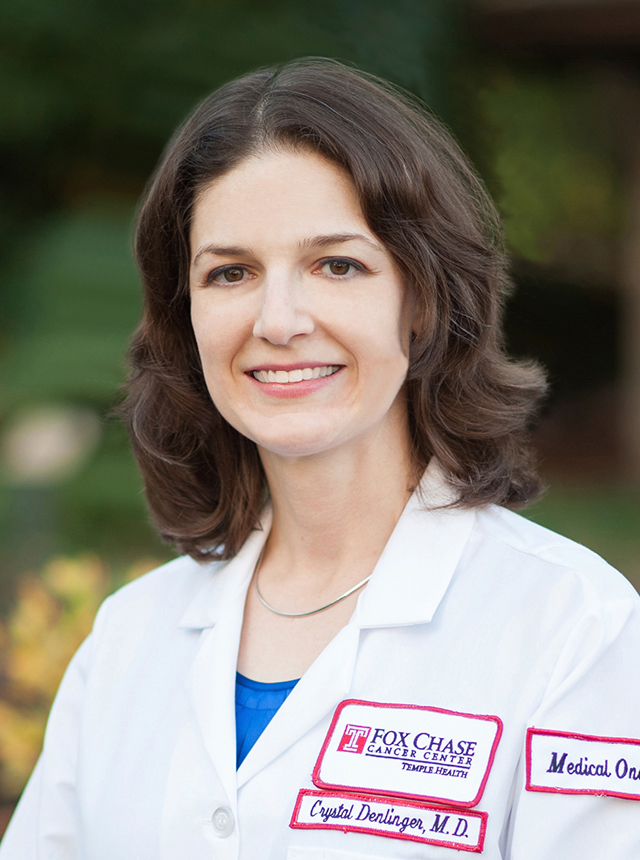
HOLLYWOOD, Fla. (March 18, 2012) — People are living longer with and after a cancer diagnosis, making survivorship clinics and programs—as well as official guidelines and practices governing the care of survivors—an important emerging component of modern cancer care. Many institutions are looking to gather these resources into an easily understandable plan for their survivors.
“Cancer survivors face a lot of unique and very specific challenges,” says Crystal S. Denlinger, MD - Assistant Professor, Gastrointestinal Oncology, a medical oncologist at Fox Chase Cancer Center who will present on best practices in cancer survivorship at the NCCN 17th Annual Conference: Clinical Practice Guidelines & Quality Cancer Care™ on March 18. “In oncology medicine, there has been a much more concerted effort to address these needs in a systematic way.”
Denlinger has been leading efforts for the last five years to enhance survivorship care at Fox Chase—a founding member of the National Comprehensive Cancer Network (NCCN) and a national leader in the movement towards better survivorship care. She spearheaded the development of the Center for Survivorship at Fox Chase, which collects in-house and by-referral resources to provide comprehensive survivorship care to the Center’s patient population.
At the presentation, Denlinger and her colleagues will address best practices and the major elements of survivorship care. They will cite the most current research on survivorship, which includes recently released guidelines from the American Cancer Society on nutrition and physical activity and the American College of Sports Medicine on exercise. The goal of such guidelines is to shepherd the survivor through the four “seasons of survival,” which include acute, transitional, extended and permanent survivorship—or the path from diagnosis to remission and beyond.
Denlinger notes that even patients with metastatic disease have unique survivorship care needs.
“Some people are considered cured after treatment and others will continue to live with their cancer,” she says. “Just because you’re living with cancer doesn’t mean you’re not a survivor. We need to address the unique needs of both populations.”
Denlinger is currently working to develop Fox Chase’s own survivorship care plan, which will be a printed packet that is tailored to each patient, summarizing therapy and making recommendations based on the patient’s specific case. She will also be working with other members of the NCCN network over the next year to establish a full panel on cancer survivorship in time for next year’s conference.
“Fox Chase’s efforts in this area will continue to evolve as awareness about survivors’ needs increases and we continue to focus more on life with and after cancer,” Denlinger says.
Cancer accreditation organizations are increasing their focus on survivorship as well, Denlinger says, and may soon include survivorship care plans in their requirements.
Denlinger will be joined at the NCCN discussion by Terry S. Langbaum, MAS, from the Sidney Kimmel Comprehensive Cancer Center at Johns Hopkins, who will discuss survivorship from the survivor perspective, and Mary S. McCabe, RN, MA, of Memorial Sloan-Kettering Cancer Center, who will address the importance of the survivorship care plan.